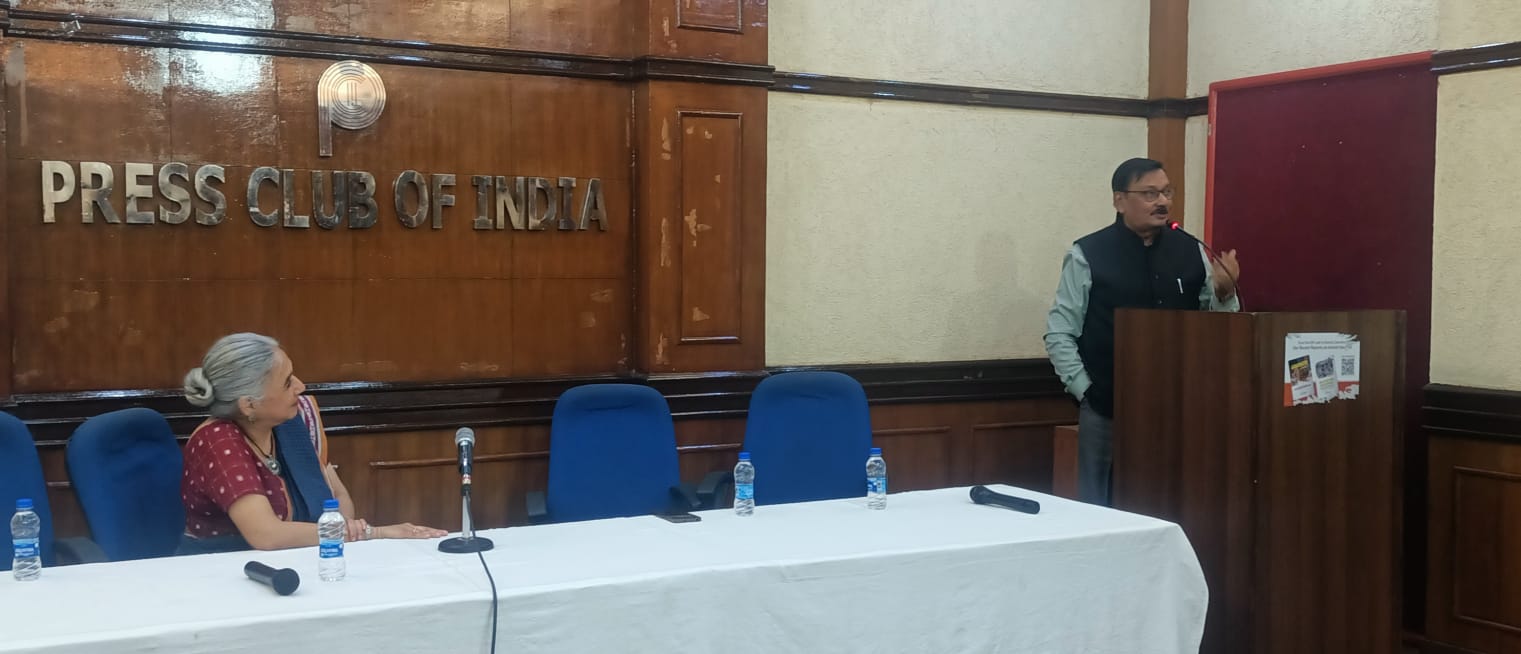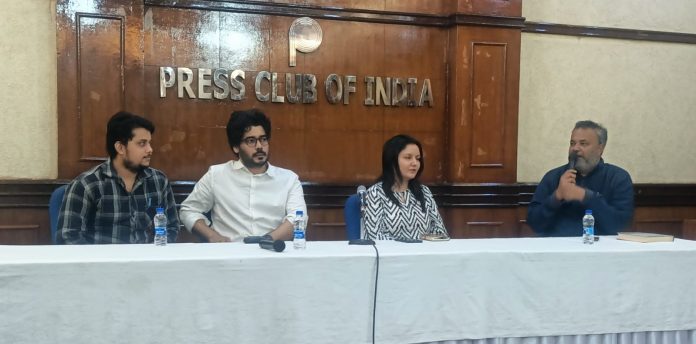New Delhi: Dr. Swapna Liddle, noted historian and author of The Broken Script, shed light on the life of Moulvi Muhammad Baqir during a memorial event organized by the Press Club of India (PCI). The event, titled The Life and Times of Moulvi Muhammad Baqir, celebrated the journalist’s contributions during the 1857 Revolt in Delhi. Liddle emphasized how Moulvi Baqir became the voice of resistance against British rule, making him a significant figure in both the 1857Revolt and in the annals of Indian journalism.
According to Dr. Liddle, Moulvi Baqir’s work offers invaluable lessons for journalists today. His views on British governance, racial discrimination, job inequalities, and the exploitation of India’s wealth laid a foundation that remains relevant. Baqir’s sharp critique of British policies, combined with his unwavering call for unity among the people of Delhi, positioned him as a crucial figure in the anti-colonial struggle.
 Presiding over the event, Gautam Lahiri, PCI President, hailed Moulvi Baqir as a pioneer of Indian journalism. Lahiri reflected on the state of modern journalism, pointing out that Baqir’s dedication and principles serve as a stark contrast to the current state of media, as reflected in India’s declining position on the World Media Freedom Index.
Presiding over the event, Gautam Lahiri, PCI President, hailed Moulvi Baqir as a pioneer of Indian journalism. Lahiri reflected on the state of modern journalism, pointing out that Baqir’s dedication and principles serve as a stark contrast to the current state of media, as reflected in India’s declining position on the World Media Freedom Index.
“It’s unfortunate that instead of rising to the level of journalism Baqir practiced, we seem to have regressed,” Lahiri noted, calling for introspection within the media industry.
Lahiri also stressed the importance of protecting institutions like the PCI, which he described as a cornerstone of Indian politics and modern history. “This land was given to us by our first prime minister, and it even served as the residence of former Prime Minister Indira Gandhi for a time. We must protect both the building and the institution, while upholding the constitutional values that it stands for.”
Senior journalist AU Asif, former member of PCI management committee, praised Baqir for his trailblazing work in investigative and field reporting. He underscored how Baqir’s journalistic integrity set a lasting example for future generations.
A panel discussion followed, focusing on Baqir’s legacy and the challenges faced by Urdu journalism today. Panelists included independent multimedia journalist Suhail Akhter, News18 Urdu anchor and author Munazah Shah, and Tasleem Raja, reporter for Siyasi Taqdeer and Qauwmi Aawaz. They discussed how Baqir’s newspaper, Delhi Urdu Akhbar, became a vital voice despite having a modest circulation of just 80 copies. The panel emphasized that the publication’s influence stemmed from its powerful content, which resonated with readers during a time of great political upheaval.
The discussion also touched on the difficulties Urdu journalism faces today, including issues of subscription, funding, and content creation. The panel drew parallels between the courage Moulvi Baqir exhibited in standing up to the British and the challenges modern journalists face in dissenting against the ruling establishment. The event was moderated by Mahtab Alam, journalist and PCI Joint Secretary.




